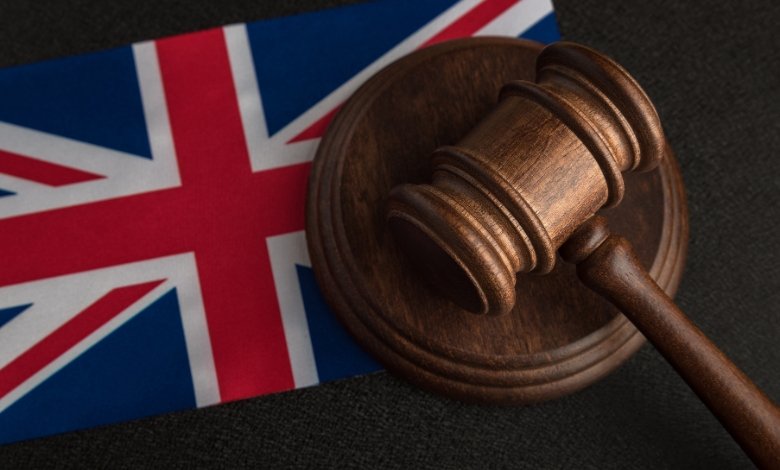Understand what the meaning is behind the repeal of anti-Welsh laws in 1624, cultural change, and the path to equality in Wales.
Historical milestones are often forgotten, particularly when the modification in the law has included changes that are somewhat obscure or feel very far away. That is emphatically not the case, however, with the repeal in 1624 of anti-Welsh laws marking an important milestone on the road to equality and recognition for the people of Wales.
It will undertake a detailed explanation of the history of 1624 Anti-Welsh Laws, the process of repeal in 1624, and discuss quite vividly the holistic effect of such repeal on the social dimensions of Welsh people. En route, I relate personal anecdotes and reflections which make this historical narrative more readable and relatable.
Table of Contents
Setting the Scene: The 1624 Anti Welsh Laws
Before we can appreciate the importance of the repeal, we must understand the context within which these laws existed. The Anti-Welsh Laws were a set of discriminatory regulations introduced in the late 16th and early 17th centuries to suppress the culture and language of Wales. Imagine waking up one day to find yourself living amongst people whose identity is structurally undermined by the very laws set or supposed to govern you. That was the reality of many Welsh individuals at the time.
It has been frequently cited that anti-Welsh sentiment originally sprouted from the 1402 Welsh Penal Laws written to control and punish the Welsh. This was part of a greater trend toward discriminatory representation against the Celtic civilizations. For many years, some were made to feel like outsiders in their own country, with many of their languages and ways suppressed.
Personal Reflection
Growing up in Wales, my grandparents would tell me of the hardships our ancestors endured. They spoke of how to speak Welsh warranted punishment at school. How surreal it is to imagine that within a modern society, there existed times when people were made to feel ashamed of who they were. This personal link with heritage is what drives me to produce a discussion on the repeal of anti-Welsh laws in 1624.
The 1624 Repeal Process: How Change Happened

So, how did that repeal come about? The journey to the repealing of those anti-Welsh laws in 1624 was not straightforward. That required determined activists and key figures who felt the need to change. Maybe the most important moment was the way in which the injustices perpetrated upon the Welsh came increasingly into English parliamentary awareness. In part, this shifting perspective was due to an increasing integration of Welsh and English communities.
Overview of Key Figures in the Repeal
Among the key figures in the 1624 Welsh law repeal was Sir Edward Mansel, a powerful advocate for Welsh rights. His efforts, alongside those of other Welsh leaders, were instrumental in bringing the plight of the Welsh people to the forefront of political discourse. Mansel’s vision for a more inclusive society resonated with many, and his role in the repeal process is often celebrated in Welsh history.
Just visualize yourself standing up in a full room of lawmakers, fervently arguing for the right of your people. That was real life for Mansel in fighting for repeal. It is quite an inspiration to imagine the guts it took to challenge the status quo.
The Impact of the repeal of Welsh Law in 1624
The impact of the 1624 Welsh law repeal was profound. It marked a significant step toward equality and recognition for the Welsh people, allowing them to reclaim their identity. The repeal signified a shift in the perception of Welsh culture, paving the way for future generations to embrace their heritage without fear of persecution.
Cultural Renaissance
The Welsh language flourished and formerly prohibited cultural activities emerged in the years after the repeal, giving the impression that Wales was experiencing some kind of true cultural revival. It was not only a question of recovering a language but one of recovering pride in being Welsh.
Attending my first Welsh language festival made me reflect on the joyful sixty years of pageantry and celebration in the air, a stark contrast to the stories of oppression my grandparents used to share. It was one of those moments where I knew-plumb-told ten times over that I am proud of my roots, partly because of those who preceded me.
Comparative Discriminatory Laws in the UK by 1624

To better understand the 1624 repeal of anti-Welsh laws, we can compare them with other discriminatory laws in the UK at that time. For instance, legislative acts targeting the Irish and Scottish populations reveal a broader pattern of exclusion and control.
For instance, the Penal laws against the Welsh were not something peculiar to the Welsh people, but part of the general framework of legislation enacted in an attempt to suppress minority cultures across the UK. It is within this larger context that the magnitude of the repeal enumerated below assumes importance as a step toward dağılatis.
An Account Personal
When I followed the path of these laws, I couldn’t help but think back to a profound talk I once had with an Irish friend about how we may connect via common experiences and compare the diverse hardships of our ancestors. Fascinating how this history shapes our identities and how we relate to one another.
The Legacy of the Repeal
The repeal of the anti-Welsh laws in 1624 is important, considering long-term implications that stretched outside the short-term effects. It set the ground for all future movements of rights and self-government of the Welsh people, but most importantly, it set the stage for discussions on Welsh devolution in the late 20th century that resulted in the establishment of the National Assembly for Wales in 1999.
Modern Connotations
Its repeal can still be felt today, with the Welsh language now celebrated; there is a growing recognition of its place in education and public life. Indeed, the efforts of those who fought for the repeal have had far-reaching implications-a sense of pride and identity carved among the Welsh.
Looking back, history always teaches us valuable lessons, reminding us that even in the face of adversity, we have the power to stand up for certain rights and create change.
FAQs
Q 1: What did the Anti-Welsh Laws comprise?
Anti-Welsh Laws were a set of discriminative statutes that appeared in England during the late 16th and early 17th centuries. The idea was suppression-suppression of Welsh culture, language, and rights, appealing to anti-Welsh feelings among the common people. They included measures that restricted the use of the Welsh language and imposed penalties for its use in certain contexts.
Q 2: What was the meaning of the repeal of anti-Welsh laws to Wales in 1624?
The repeal of the Anti-Welsh Laws in 1624 was significant because it marked a pivotal moment in the recognition of Welsh identity and rights. It represented a shift toward greater acceptance and the beginning of a cultural revival in Wales, allowing for the re-emergence of the Welsh language and cultural practices that had been suppressed.
Q 3: Who were the major players in its repeal process?
Key figures in the repeal process included Sir Edward Mansel, a highly influential Welsh landowner and politician in beliefs and struggles concerning the rights of the Welsh. His efforts, along with those of other leaders and activists in Wales, were essential in raising the community’s conscience due to the injustices faced by the people of Wales, as well as pushing the repeal forward in Parliament.
Q 4: How did this reflect on Welsh culture and nationality?
The effects of its repeal were deep and far-reaching-revitalizing Welsh culture and nationality. Following the repeal, interest in the Welsh language, literature, and customs showed fresh vigor. This would be a premise for later movements that aimed for Welsh autonomy and the establishment of the National Assembly for Wales toward the late 20th century.
Conclusion: Why the 1624 Repeal Matters Today
In fact, the repeal of anti-Welsh laws in 1624 was a real watershed in Welsh history. Indeed, the victory of the people of Wales proved to be a catalyst in realms both cultural and political. This repealing was the product of committed activism intent on bringing meaning to recognizing and celebrating cultural identities.
All these historical moments echoed in me, trying to understand my journey of ‘being Welsh’. They shape who we are and inspire us to be vocal about equality and recognition in our lives. The spirit of repeal is alive today with a powerful reminder that justice and identity are an ongoing battle.
It is by understanding the impact of the 1624 Welsh law repeal that we are actually paying homage to the past and giving future generations the confidence to embrace their identity fully. History, after all, is not about dates and events, but about the stories of people and their journeys through the steps of recognition and acceptance.


